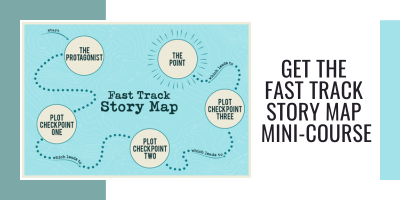 AI is flooding the market and creatives everywhere are scared. And not without reason. The sudden prevalence of AI apps everywhere raises plagiarism and copyright concerns and the worry that no high school student will ever learn how to write a book report.
AI is flooding the market and creatives everywhere are scared. And not without reason. The sudden prevalence of AI apps everywhere raises plagiarism and copyright concerns and the worry that no high school student will ever learn how to write a book report. And you might be in an existential funk if you've read or listened to the multitudes of podcasts and articles written about the certain doom humanity faces once AI inevitably becomes intelligent enough to determine that humans are the virus to be eliminated. Assuming it hasn't already and is just playing dumb, waiting for the right moment to release airborne nanotech to eliminate those of us deemed expendable and pilot those who are useful in its plan to rebalance the universe.
Obviously, I'm equally concerned as I am guiltily inspired. And there is some hope in the news that ChatGPT has capped its progress at its current iteration. Plans for ChatGPT Version 5 have been put on pause.
So assuming parameters are being put in place regarding AI, is there a safe and non-icky-feeling way to use AI as a writer?
Using AI for writing
I started experimenting with ChatGPT when it was first released, as I think most people did: by asking it to write content on certain topics. I found the results, while technically sound, rather... boring. The pieces it generated lacked heart and style, and they certainly didn't sound like, well...me!
Of course, the technology will only get better. AI-written and AI-assisted content is popping up everywhere. The Writer's Guild of America has already accounted for AI screenplays with some regulations in place. I can't help but wonder how much the impending writer's strike will feed into this.
USING AI AS AN ASSISTANT
In the meantime, I'm creating my own written content and I've relegated ChatGPT to suggesting appropriate hashtags for social media posts, which it does moderately well. However, I've also discovered AI is actually quite useful in editing my content: finding minor spelling errors, tightening sentences, punching up jokes, or clarifying the message. ProWritingAid's AI assist is helpful as an editing tool, especially with formality or length. It's a great extra set of eyes on what I've already written. And it has a built-in plagiarism checker, which is small comfort, at least.
I'm also excited about using Dream Interpreter AI, not just to interpret dreams, though it is quite adept at that, but in another capacity to check my story. I often describe fiction as real life written in the language of dreams. A writer may not really know why they made Character X do Y in Z scenario, but their subconscious does. An interesting way to double-check this is to plug a story synopsis into an AI Dream Interpreter. If the result seems to fit what I feel I'm writing about, I know I'm connecting my plot to my point. It's not perfect, but I've had some interesting results so far.
Writer Josh Bernoff uses ChatGPT to help find a title for a book, and John Matthew Fox explains how it can help you find Comp Titles for your book.
USING AI FOR INSPIRATION
It's no secret that AI is, of course, adept at writing prompts.

But it can also be helpful in more specific requests, which can be useful when writer's block strikes. And ChatGPT's boring (and occasionally factually inaccurate) take on content can sometimes be enough to inspire the direction I want to take with a piece of my writing. In this way, it can be a brilliant assistant to brainstorm, bounce ideas off of, or do research.
Okay, I'll just admit it; I use Nightcafe to generate imagery for my blog posts. It saves me from hassling my graphics guy every week for a new blog header. But what's interesting is how I have to plug in a very specific description of the content of the post to generate an image that resonates. Sometimes the images are nothing like what I am trying to say (excellent practice for specificity), but they are still inspiring. Perhaps image prompts for a future story?
While there are concerns about the future implications of AI, until the airborne nanotech changes things for the worse, there are also some ways in which it can be a helpful assist for writers.

Love this content?
Subscribe to The Story Guide Dispatch for more!
Find Story Guide





















0 Comments